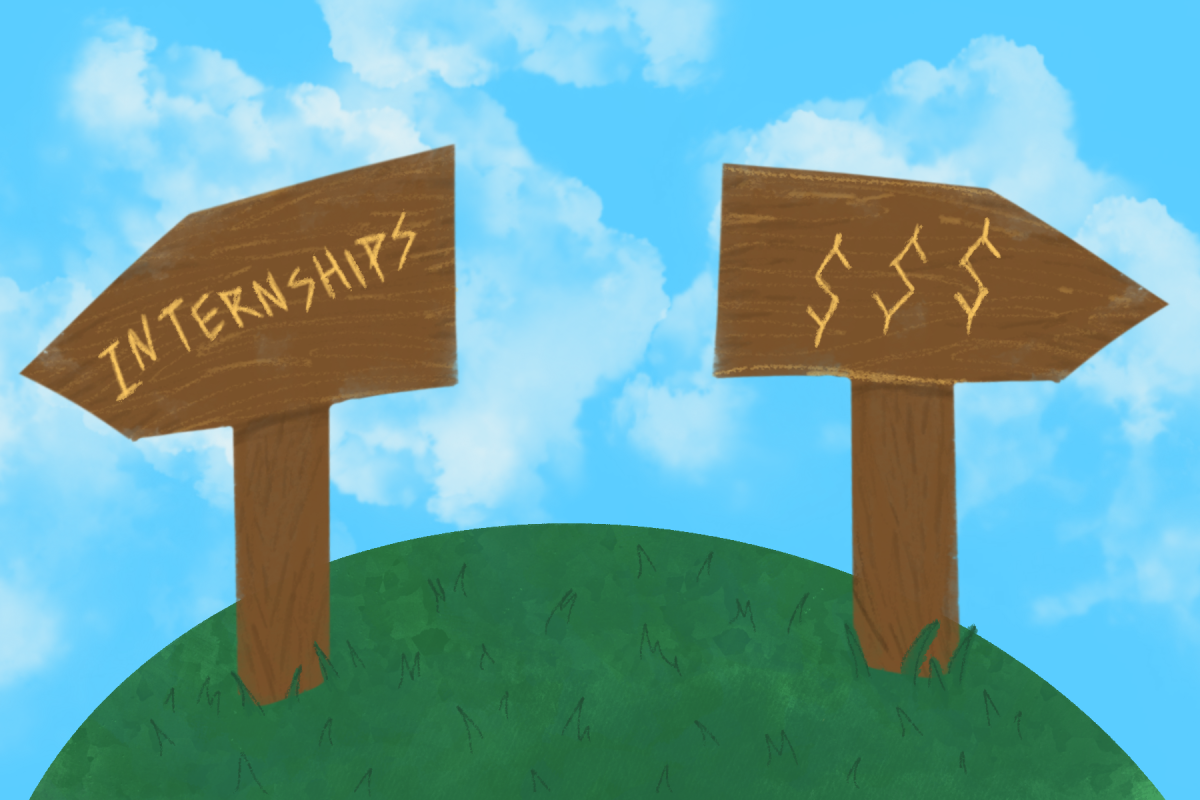In the age of LinkedIn and digital networking, students can see their peers completing summer internships and accepting job offers each time they log onto social media. For both students with no professional experience and those with a full resume, taking on more than they’re able to may seem like the right decision at the moment but prove overwhelming in practice. To avoid getting caught up in the hustle culture these sites promote, students should consider their mental health before accepting new opportunities.
Adria Villarreal, assistant director of career counseling, said the most common comment students make during appointments is that they feel behind as they come into college.
“One of the things we do in our office is really try to help slow down students and help them realize that more is not necessarily better in terms of classes or commitments, or internships or jobs,” Villarreal said. “It’s about quality and about figuring out what skills they want to develop and being intentional about that.”
Most students already have enough significant professional experience to create a resume. Villarreal said that students should look beyond traditional resume-building activities, such as coursework and in-class projects, to create a successful career experience.
“I think a lot of students come in and feel like they don’t have any experience whatsoever,” Villarreal said. “Then the more they talk, the more that we’re able to kind of tease out all the experiences they’ve had, they can build their resume.”
Still, taking on too many courses, clubs or social commitments can lead to burnout. In fact, 86.5% of college students report feeling overwhelmed by their obligations. Burning out early on as an undergraduate can keep students from pursuing interests or gaining new experiences sustainably.
“I definitely have had to say no to certain things that come up, and I think that comes with knowing yourself deep down and knowing what your capabilities are as well as the level of commitment that you want to have to your higher obligations,” said Collin Blackwell, graduate student in the School of Pharmacy. “Because I’m the type of person once I do commit to something, I’m going to give it my full effort and it’s something I always need to factor in when I’m deciding to do more.”
While rejecting paid internships and jobs may not be realistic for everyone, reducing stress from other commitments is still possible. Taking on more work than is necessary for clubs or other social obligations can drain students and prevent them from giving all of their effort to whatever it is they truly care about.
“Each student needs to kind of look at where they are in the moment and take on what they can reasonably manage and what won’t be too much because I feel like we see a lot of stress and burnout and mental health struggles in our office as well,” Villarreal said. “Truthfully, when you’re over-committed, you’re probably not engaged as well as you could be so you’re probably not getting the full experience.”
Turning down an opportunity can benefit students when they feel overwhelmed and overcommitted. While college is a time filled with options and the freedom to explore different professional interests, taking on more work simply to have another experience on a resume should not be the primary motivator when students commit to something new.
“We’re always constantly comparing each other to peers,” Blackwell said. “I think that’s probably the biggest damage that we can do to ourselves because at the end of the day, we know ourselves better than anyone else.”
Henningsen is an English and advertising major from Austin, Texas.














